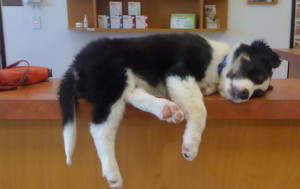 Charlotte is situated in the coastal state of North Carolina. The state is marked by three distinct climate zones; from the beaches to the flat grasses to the foothills with tall grasses, which then transitions into the Appalachian Mountains. This varied climatic interplay gives rise to a diverse population of wildlife in the region. From the big black bear and cougars to the tiny jellyfishes and even squirrels.
Charlotte is situated in the coastal state of North Carolina. The state is marked by three distinct climate zones; from the beaches to the flat grasses to the foothills with tall grasses, which then transitions into the Appalachian Mountains. This varied climatic interplay gives rise to a diverse population of wildlife in the region. From the big black bear and cougars to the tiny jellyfishes and even squirrels.
While a majority of the animals live in isolation, some have learned to thrive around human settlements. That’s why creatures like squirrels and raccoons will gain access to the attic for the warmth and safety it provides.
Although there’s hardly physical combat between these animals and humans, they still pose a series of threats. But most notably is the damage they cause to properties. Asides from damage, they will also leave their droppings which contaminates the infected space and may even pose health risks.
The first step towards keeping these destructive animals away is by eliminating major attractants. This means making it impossible for them to secure food or shelter from your yard.
This post explores some of the most common wildlife found in Charlotte and how to protect your property from them.
Squirrels
Squirrels are a common nuisance. These agile, cute creatures love to live in the attic because of the warmth and safety it provides. It is the perfect place to raise their babies. However, they will chew on wood, insulation material, wires, and many other objects. Here’s how to keep them away:
- Ensure that you seal all potential entry holes into your attic.
- Cut off branches overhanging your roof to deny them access to it.
- Repair all vulnerable areas in your roof, like weak roof tiles.
Raccoons
These masked creatures are fairly common in Charlotte. They frequently steal pet food and even raid trash cans. They typically prefer to reside in the attic or chimney and once they find a vulnerable point, they’ll break through it. For more information on raccoons click here. Here’s how to keep them away:
- Ensure that you tightly secure your trash cans at all times.
- Do not leave pet food outside.
- Make sure you install a chimney cap.
- Seal off all potential entry holes into your attic or chimney.
Opossums
Opossums are nocturnal creatures so you’re more likely to find them at night time, probably rooting through your garbage. They are opportunistic feeders and will eat almost anything. Because they love fruits, veggies, and plants, they’ll also steal them from your garden. Opossums generally do not burrow but they make use of abandoned dens of other animals. This makes crawlspaces like under the porch, deck, or patio a perfect spot for them to live. Here’s how to keep them at bay:
- Ensure that you eliminate all food sources. Properly secure your trash cans. Do not leave your pet food outside.
- Install a fence around your garden.
- Seal off all potential entry holes to your crawlspaces.
Snakes
Only 6 of the 37 species of snakes found in North Carolina are venomous. Nonvenomous snakes are, in fact, good for the surrounding because they help to keep the rodent population in check. However, having a venomous snake around puts the lives of pets and humans (especially children) at risk. Here’s how to keep snakes away:
- Implement effective rodent control strategies to cut off the snake’s primary food supply.
- Do not overwater your lawn. This attracts frogs and toads, which in turn attract snakes that feed on them.
- Keep a tidy environment. Accumulated leaf debris are great hiding spots for snakes. Similarly, an abandoned piece of equipment is a potential hiding spot.
Rats and Mice
Our list wouldn’t be complete without mentioning rats and mice. They are found on every continent in the world, except Antarctica. These nasty rodents are survivors. They can gain entrance through the tiniest of holes. And once they’re there, they’ll chew on wood, insulation material, wires, pipes, and more, causing immense structural damages. Here’s how to keep them away from your property:
- Seal off all potential entry holes. A mouse can enter a hole the size of a dime, while a rat can enter a hole about 20 mm wide. So, make sure to carefully inspect every area of your home.
- Store all your foodstuff in aluminum cans.
- Keep a tidy yard to eliminate potential hiding spots.
- Clear away food crumbs from the bird feeder and do not leave your pet food outside.
Bats
Bats love to reside in dark, high, and warm places. That’s why they sometimes occupy the attic or chimney. Sealing off all potential entry holes and installing a chimney cap will prevent them from entering your house. You can also provide them with a bat box as an alternative place to reside in.
Conclusion
To effectively deal with a wildlife infestation problem, an adequate understanding of animal behavior will go a long way in developing effective control strategies. That’s why involving a professional wildlife removal company is usually the best bet.


